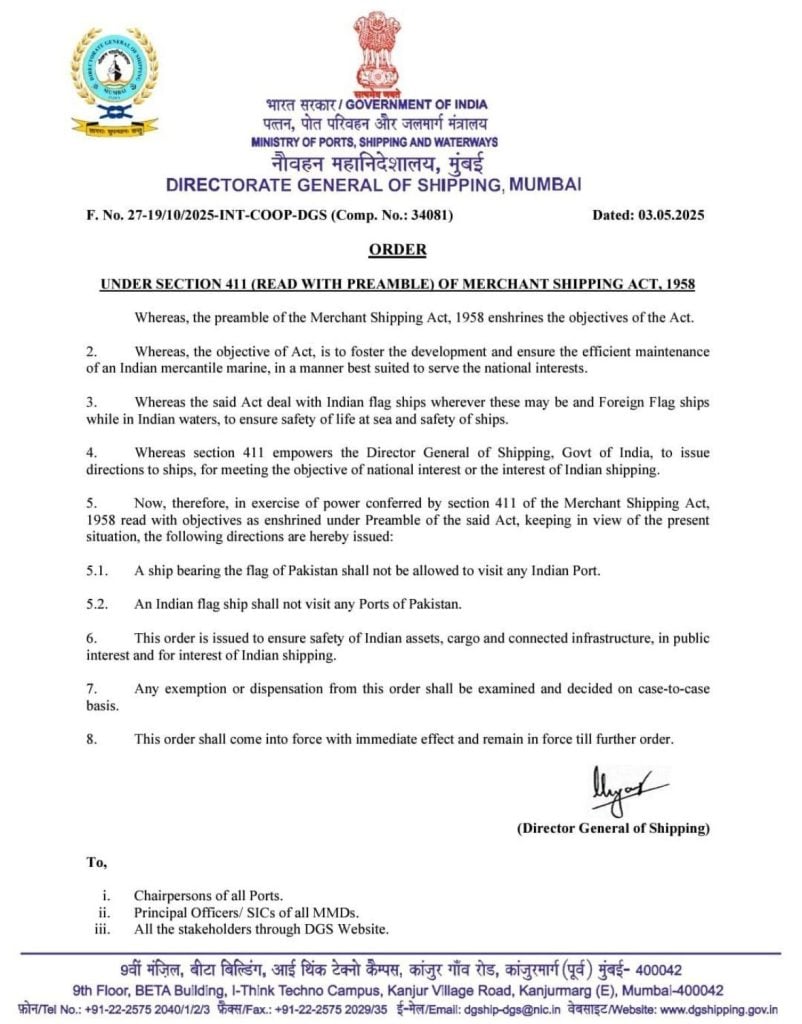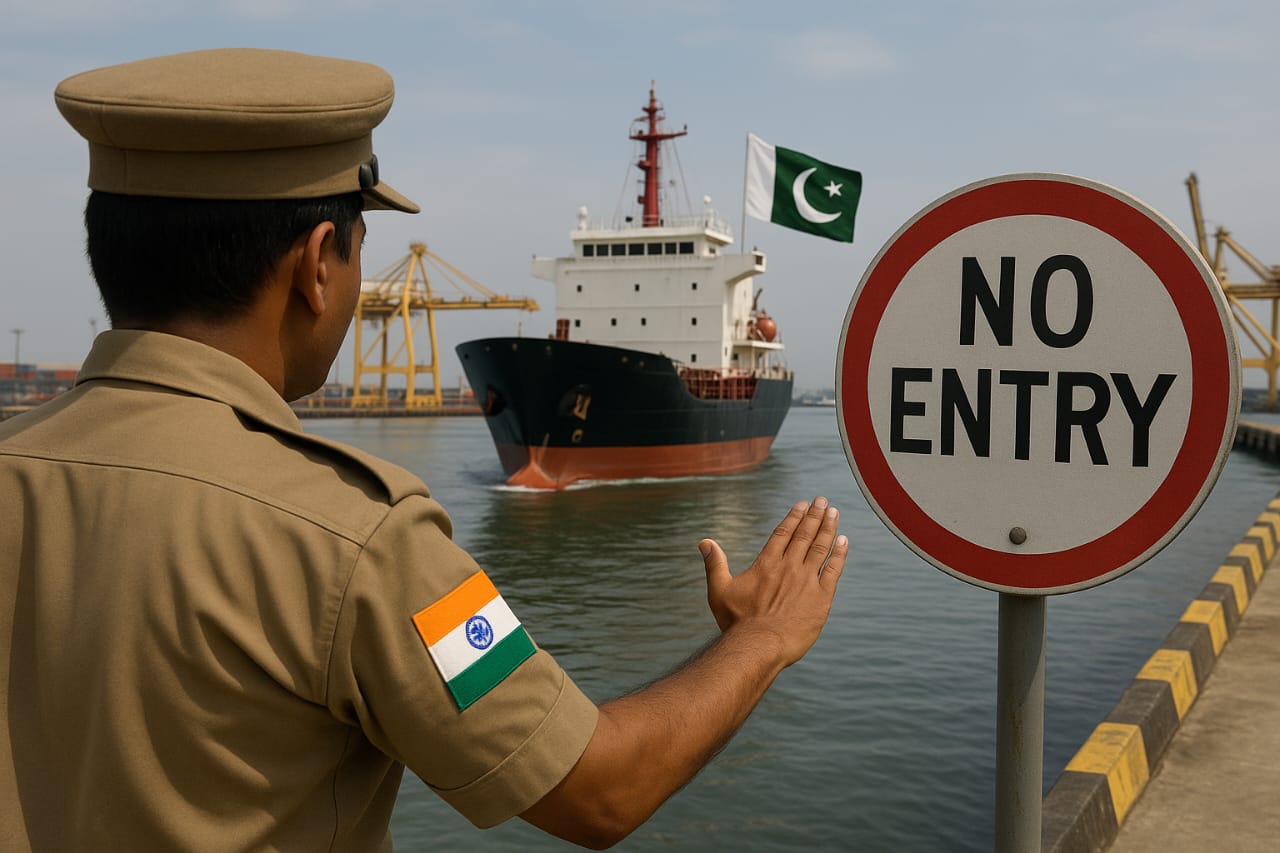In a significant move that further strains relations between India and Pakistan, the Indian government has issued a directive prohibiting ships flying the Pakistani flag from docking at Indian ports. The order, which came into effect on May 2, 2025, also bars Indian vessels from visiting Pakistani ports, marking a new chapter in the escalating tensions between the two countries.
The Ministry of Ports, Shipping and Waterways cited national security concerns following the deadly Pahalgam terror attack on April 22, 2025, which claimed 26 lives and has been attributed to Pakistan-backed terrorist groups by New Delhi. As a response to this attack, India had already restricted Pakistani airlines’ use of its airspace, a decision that has been met with retaliation from Islamabad.
The new maritime ban, backed by the Merchant Shipping Act of 1958, is intended to safeguard India’s maritime interests and protect its national security. It not only prohibits Pakistani vessels from docking at Indian ports but also mandates that Indian ships avoid visiting Pakistani ports. Any violations of the order could lead to severe penalties, including the cancellation of Indian vessels’ registrations. Additionally, foreign vessels transporting goods or passengers to or from Pakistani ports will also be subject to the restrictions, further isolating Pakistan from India’s critical maritime routes.

The move is seen as the latest in a series of retaliatory actions between India and Pakistan. On April 30, India had already banned Pakistani airlines from using its airspace, a decision that escalated the already fraught diplomatic environment. Pakistan, denying involvement in the Pahalgam attack, responded by suspending all trade with India, including indirect trade through third countries such as the UAE. This maritime ban is likely to have far-reaching consequences, particularly for Pakistan’s economy, as much of its informal trade with India, estimated at $10 billion annually, is routed through third nations.
The ban could severely disrupt Pakistan’s pharmaceutical sector, which relies heavily on Indian imports, and may also affect the local economies around India’s Integrated Check Posts (ICPs). Furthermore, trade lawyers such as Shantanu Singh predict that these disruptions will exacerbate challenges for Pakistan, especially as both nations already contend with regional economic strains.
International observers, including UN Secretary-General Antonio Guterres, have urged India and Pakistan to de-escalate tensions and engage in dialogue. However, with both countries doubling down on retaliatory measures, including India’s suspension of its participation in the Indus River water-sharing agreement and Pakistan’s expulsion of Indian diplomats, the path to reconciliation remains uncertain.
The decision to bar Pakistani vessels underscores the increasingly divisive nature of India-Pakistan relations, with maritime routes now added to the long list of contentious issues between the two neighbors. As the diplomatic standoff continues to unfold, the Indian government has made it clear that it intends to maintain a firm stance, prioritizing national security and regional stability over immediate reconciliation.













